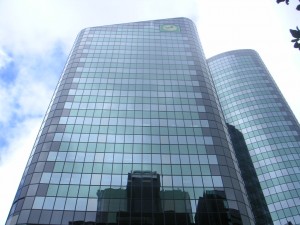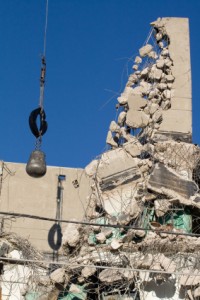
I have been thinking about the great forces of the universe.
One is a creative force, and one, a destructive one.
It seems that in the state of nature these forces almost balance.
Sort of the “circle of life” scenario, where all things have their time and fulfill their purpose.
Every demise somehow adds to the viability of some new life.
It is interesting to ponder the question of which force is more powerful.
On the one hand, the creative force is so compelling that humankind has almost collectively put its faith in it, in one form or another.
It is arguable that devotion to the creative force is the impetus behind all human achievement, whether on a personal or a societal level, and in any arena.
On the other hand, the destructive force requires almost no energy to do its work. Leave an apple on a counter and watch over the course of days how entropy has its effect with great efficiency.
The introduction of human will seems to tip the scale—either to the one side or to the other.
Consider an office building.
You could ponder for some time without ever fully enumerating the vast number of details that had to be ordered to lead to its creation.
Not just the design, the organization of materials, the construction; include also the training of the individuals that took part in every aspect of its erection, as architects, sub-contractors, inspectors, inventors, regulators of code, investors, miners of ore, manufacturers of tools and technologies, etc.
But it must go further—the “natural selection” of the parentage of each individual that led to their gifts, affinities and opportunities.
You could go deeper and deeper and still find long lists of events and circumstances that had to coincide for that building to come into existence.
The confluence of events is astronomically great—virtually unfathomable.
That plot of ground could stand vacant for eternities without such a building coming into existence by happenstance.
And yet—let the office building, once erected, stand for a century or two, and circumstances will conspire to tear it down.
Either by violent acts of nature or by simple entropy (as in the case of the apple), the destructive force will have its way.
But the most likely way for the building to come down is as a result of human will.
Consider the wrecking ball: how simply is its work carried out, how mindlessly, as opposed to the care required to put each I-beam in place.
What a profound difference!
But as I thought of the great forces in the universe, I wasn’t looking for meaning in the way buildings go up or come down.
I was thinking about human will.
I was thinking about the care it takes to build something, the astronomically long odds against success, and the fragility of things once built—whether it be a marriage, a family, a business, or whatever else.
I was thinking of the casual way in which we sometimes give our will to destructive forces—which really need no helping along in their work, after all!
I was thinking about allegiance.
While I appreciate the destructive force in nature—where would we be if dead things did not return to the earth?—I must say that in terms of human will I consider allegiance to the destructive force, or respect for the work humans do to humans using the destructive force, to be a pretty fair working definition of “evil”.
It is disturbing to think that we sometimes choose to align our sacred will to the purpose of tearing down.
Almost as disturbing, and perhaps more insidious, is the mindset that gives more credence to the voice of destruction than to the voice of creation.
A wise man once counseled, “Be a builder, not a basher.”
It requires no genius to tear something down, and even less to support or be led by those who do.
It requires character, sacrifice, persistence and optimism to build things up; and these are the recipe for happiness.
Another wise man once told me, “The messenger is the message.”
By this he meant: if the voice is tearing down, that’s all you need to know.
Shun it.
Even if there might be elements of truth in it, they are being distorted to a destructive purpose, and not to inspire, enlighten or increase understanding.
Truth with intent to deceive is more treacherous than Lie.
Truth ought better to be learned from a different messenger—one with allegiance to the creative power.
So the question is…
Where is my allegiance? Where is yours?
And further…
- Am I a builder or a basher?
- Do I lend my will to tipping the scales toward creation or toward destruction?
- Do I allow myself to be unsteadied by voices that tear down? Can I be numbered among those who speak peace and build bridges?
- How does my allegiance manifest itself in my daily choices?
- What kind of messenger am I?
- Do I criticize my spouse or children?
- Do I allow criticism or discouragement to keep me from building something of value?
- Do I speak words about others that are destructive rather than creative?
- Do I heed bashers—even if only in repeating their messages?
- Or do I shape my own thoughts (or seek Higher guidance to shape it) and the dialog in my home and community toward a spirit of building, and of healing?
- Do I put my effort in building, creating, making a difference, irrespective of the praise or censure of others?
Perhaps in an election year, in a year when economic conditions are perilous, in a time when societal forces are threatening family happiness, it may seem that incivility and meanness are giving the destructive force an advantage.
The destructive force can manifest itself with chaotic power or with subtle erosion.
But Virginia Woolf said, “Odd how the creative power at once brings the whole universe to order.”
 Our character, our choices, our virtue, wisdom, diplomacy and courage, can inspire greatness in others and move the cause of liberty.
Our character, our choices, our virtue, wisdom, diplomacy and courage, can inspire greatness in others and move the cause of liberty.
Our integrity and humility can be a strength to others around us to be all they should be.
Sometimes all that people need to incite them to align themselves with the creative force is to simply consider it.
When they see nobility in someone else, they can suddenly conceive of themselves as being noble.
Pettiness, narrow-mindedness, indolence, carelessness and negativity give way to generosity, tolerance, ingenuity, charity and optimism.
We have the power to make a difference! James Russell Lowell penned in his Sonnet IV:
Be noble! And the nobleness that lies in other men, sleeping, but never dead, will rise in majesty to meet thine own.
Words to live by…
xoxo rd
































Rachel,
I REALLY appreciate this wonderful post! It really is much easier to tear things down than to build them– and those that tear down rarely appreciate all the work that goes into creation. (Sad, but too true.)
You’ve inspired me today, and reminded me of who I want to be, and how I want to influence the world.
Bravo. 🙂
Love,
The “Other” Rachel
I’m pretty sure I’m the “Other” Rachel, Mama Rachel. I learn at your feet. oxoxox rd
Yes, that natural law of entropy- the fact that we have to put work into something so it doesn’t go to chaos or destruction is a great analogy to the work that we do within the walls of our own homes! It’s a wonderful reminder because sometimes HS can feel a bit lonely or monotonous or overwhelming, or exhausting. It’s inspiring to be reminded that we are putting our positive energy into something that will have an even greater positive impact than a beautiful office building- the building of character in the future leaders of our country and our world. Thanks for you words, Rachel. I needed them today 🙂
While it is good to be able to spot wrong and evil, finding flaws and tearing down just doesn’t take that much effort in our imperfect world. What does take effort is creating beauty peace and real solutions to problems. Thank you for the article. It is a great reminder to myself to be grateful for correct truths and principles in my life and to continue to try and build rather than destroy.
You have been doing a lot of deep and beautiful thinking lately, Rachel! I LOVE both of the articles you’ve posted in the past couple of days. You are definitely a builder, creator, healer. 🙂
Hugs,
Bonnie
Beautiful. You have written the essence of my own thoughts this week and your words are a perfect example of what truth feels like- lifting upward and outward, enlightening the mind, igniting the heart, cultivating faith, hope, love and a desire to build, create and reform.
Truth does not bite and sting and drag us through the mud and muck to a cold place of fear, prejudice, ignorance and pride- and in this case, destruction.
My heart knows the difference. Thank you for all you do.
I appreciate this insightful thought. I understand why Orrin Woodward has passed us several books down, and how I came to know of Mr.Oliver DeMille and you of you. Great information that we can learn and apply.
Thank You,
Yancy
Thank you for this. Powerful and thoughtful.
Thank you so much for sharing this article. It has inspired me to see the negative, destructive voices for what they are, “bashers”. I feel many people who chip away at other peoples confidence do it because it is easier. Maybe the thought of being a builder scares them, so rather than try to reach heights that cause them to leave their comfort zones they find it easier to stop others from climbing higher.
This is going to be an amazing thing to discuss in Family council. Thank you.
It’s nearly 2am yet I can’t stop reading this blog.
Another thoughtful, challenging post. Thank you..